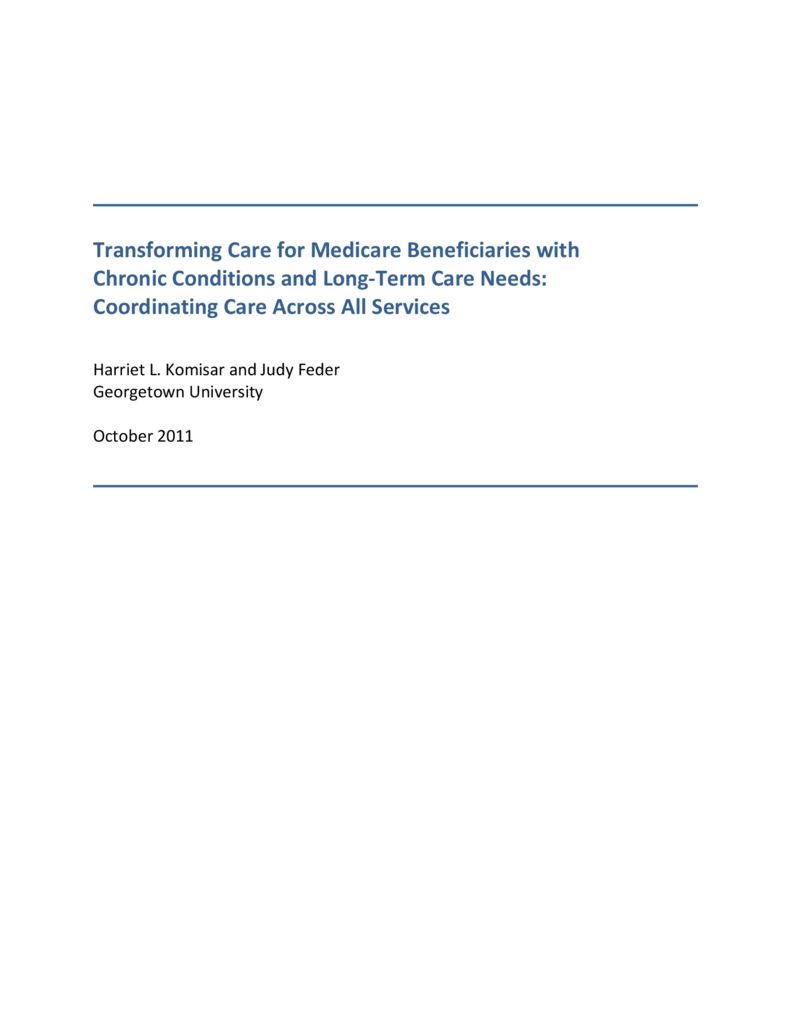Transforming Care for Medicare Beneficiaries with Chronic Conditions and Long-Term Care Needs: Coordinating Care Across All Services
summary
This policy brief is the first of two publications from Georgetown University on transforming models of care. The paper affirms that in order to improve care delivery and manage costs, innovations for Medicare beneficiaries who have both chronic conditions and functional impairments should be a top priority.
Date Updated: 10/12/2011I. Introduction
People with chronic conditions are at center stage in efforts to transform health care delivery from encouraging more—and more-costly—services to promoting prevention, primary care, and care coordination. Fragmentation and lack of coordination in health care services are increasingly regarded as not only a source of frustration for patients, but also as both impediments to quality care and drivers of health care costs. The Affordable Care Act accordingly charges Medicare with payment and delivery reforms to improve care and slow cost growth not only for its beneficiaries, but to jumpstart and influence system-wide change…
Download the publication for all visuals and complete references.
Continue Reading
This policy brief provides an introduction to The SCAN Foundation’s CLASS Technical Assistance Brief Series, which explores many of the critical issues to be considered for successfully implementing CLASS.
This policy brief describes the broad needs of individuals with disability and the wide range of supportive and environmental solutions that can allow for the most independent living possible. It suggests how findings on social and environmental supports for individuals with disability can inform implementation of CLASS.
This policy brief provides background on the historical development of benefit eligibility triggers in the private long-term care insurance market. Understanding how these triggers came into being can provide important information to those charged with implementing the CLASS Plan.


